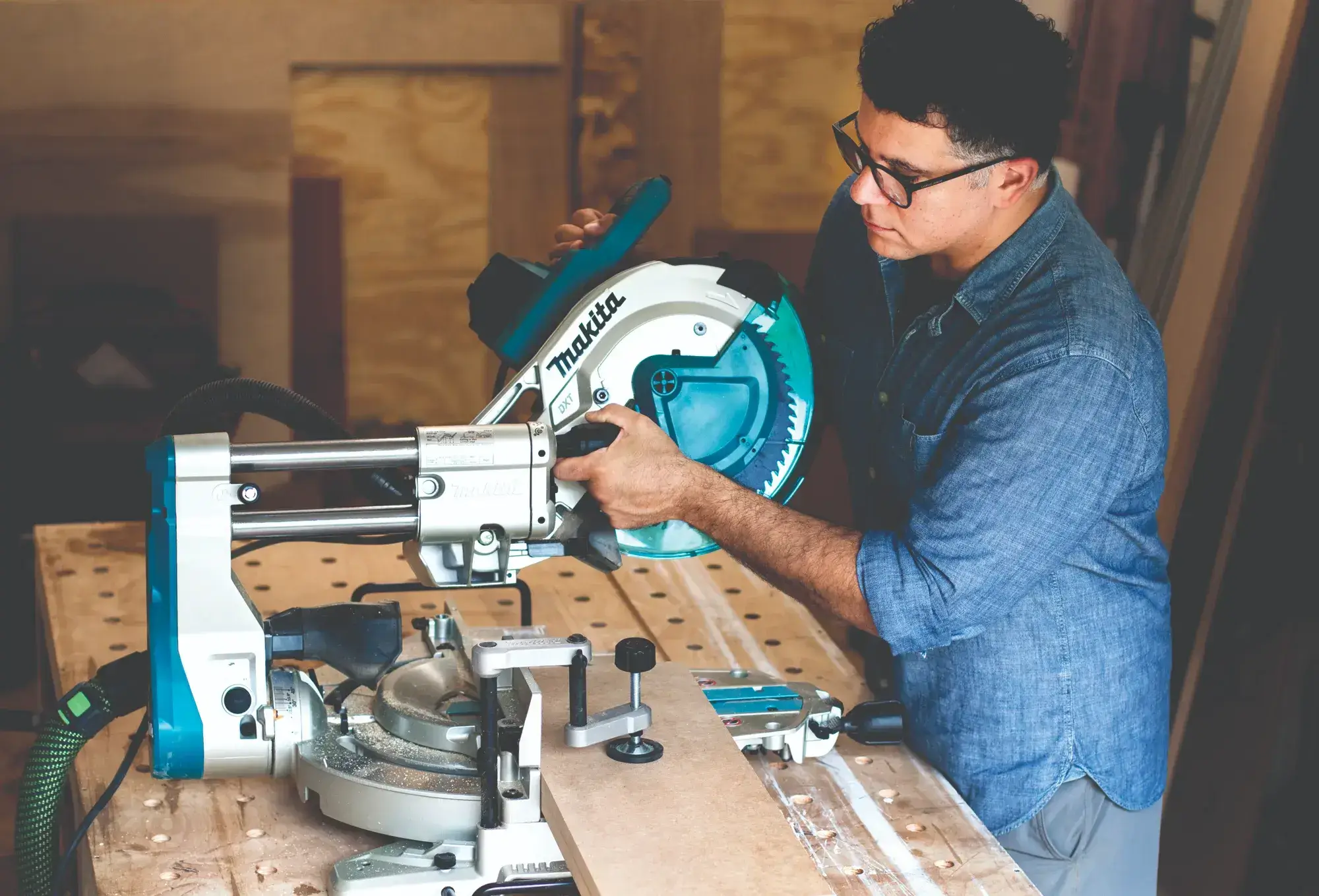A mitre saw is a power tool that can make precise and angled cuts on wood, metal, plastic, and other materials. It is one of the most versatile and useful tools for carpenters, DIYers, and hobbyists. But what exactly is a mitre saw good for? What are the benefits and drawbacks of using one? And how can you choose the best mitre saw for your needs? In this article, we will answer these questions and more.
The Benefits of Using a Mitre Saw
A mitre saw can make accurate and consistent cuts on various materials. This is the main advantage of using a mitre saw over other cutting tools. A mitre saw has a circular blade that rotates at high speed and can be adjusted to different angles and depths. This allows you to make crosscuts, mitre cuts, bevel cuts, and compound cuts with ease and precision. You can also use a mitre saw to cut crown molding, baseboards, picture frames, furniture, and other projects that require angled joints.
Some of the benefits of using a mitre saw are:
- It saves time and effort. You can make multiple cuts with the same settings without measuring and marking each piece. You can also use a mitre saw stand or a workbench to support your workpiece and reduce fatigue.
- It improves safety and quality. A mitre saw has a blade guard, a fence, and a clamp that protect your hands and fingers from the blade. It also has a dust collection system that keeps your work area clean and prevents dust from interfering with your vision and breathing. A mitre saw also produces smooth and clean cuts that reduce the need for sanding and finishing.
- It enhances creativity and versatility. A mitre saw can handle different types of materials and cuts, which opens up a wide range of possibilities for your projects. You can also use various accessories and attachments to extend the functionality and performance of your mitre saw.
The Drawbacks of Using a Mitre Saw
A mitre saw is not a perfect tool, however. It also has some limitations and disadvantages that you should be aware of. Some of the drawbacks of using a mitre saw are:
- It is expensive and bulky. A mitre saw can cost anywhere from $100 to $1000, depending on the size, power, features, and brand. It also takes up a lot of space and can be heavy and difficult to transport and store.
- It is noisy and dangerous. A mitre saw generates a lot of noise and vibration, which can be annoying and harmful to your ears and nerves. It also poses a risk of injury if not used properly and carefully. You should always wear protective gear, such as goggles, gloves, and earplugs, when operating a mitre saw. You should also follow the manufacturer’s instructions and safety precautions, such as unplugging the saw when changing the blade or making adjustments.
- It is not suitable for every project. A mitre saw has a limited cutting capacity and cannot cut very thick or wide materials. It also cannot make curved or irregular cuts, such as circles or ovals. For these types of projects, you may need to use other tools, such as a jigsaw, a band saw, or a scroll saw.
How to Choose the Best Mitre Saw for Your Needs
If you decide to buy a mitre saw, you should consider several factors before making your purchase. These factors include:
The size and power of the saw. The size of the saw determines the diameter of the blade and the maximum cutting capacity. The power of the saw determines the speed and torque of the blade and the ability to cut through different materials. Generally, the larger and more powerful the saw, the more expensive and heavier it is. You should choose a saw that matches your needs and budget. For most home and hobby projects, a 10-inch or 12-inch saw with a 15-amp motor is sufficient.
The type and features of the saw. There are three main types of mitre saws: standard, compound, and sliding. A standard mitre saw can only make crosscuts and mitre cuts. A compound mitre saw can also make bevel cuts. A sliding mitre saw can also make wider cuts by sliding the blade along a rail. You should choose a saw that can make the types of cuts you need for your projects. You should also look for features that enhance the accuracy, convenience, and safety of the saw, such as a laser guide, a digital display, a dust bag, a brake, and a lock.
The quality and warranty of the saw. The quality of the saw depends on the materials, construction, and design of the saw. You should look for a saw that is durable, stable, and easy to use. You should also check the warranty of the saw, which indicates the confidence and reliability of the manufacturer. You should look for a saw that has a long and comprehensive warranty that covers the parts, labor, and service of the saw.
Conclusion
A mitre saw is a great tool for making precise and angled cuts on various materials. It has many benefits, such as saving time and effort, improving safety and quality, and enhancing creativity and versatility. It also has some drawbacks, such as being expensive and bulky, noisy and dangerous, and not suitable for every project. You should weigh the pros and cons of using a mitre saw and choose the best one for your needs based on the size, power, type, features, quality, and warranty of the saw. A mitre saw can help you complete your projects faster, easier, and better. Happy cutting!

